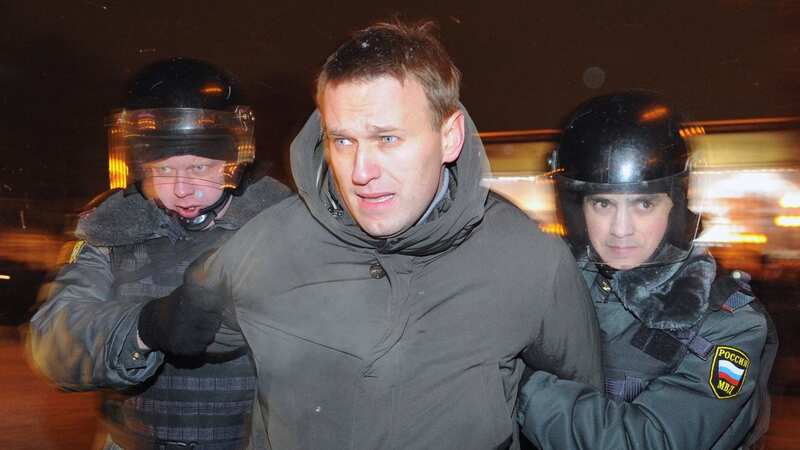UK sanctions the bosses of Russian prison where Alexei Navalny was killed

The UK has sanctioned the chiefs of the Russian prison where Alexei Navalny was detained and killed.
Foreign Secretary David Cameron announced those in charge of the Arctic penal colony where the opposition figure was held will be banned from the UK and see their assets frozen under new sanctions. The Foreign Office said the UK is the first country to impose sanctions in response to the death of Mr Navalny, who it described as "a political prisoner who dedicated his life to exposing the corruption of the Russian system, calling for free and open politics".
Rishi Sunak paid tribute to Mr Navalny and sent his "deepest condolences" to his family at Prime Minister's Questions. Russian prison officials said that Mr Navalny died last week after feeling ill during a short walk at IK-3, a notoriously brutal prison in the Russian Arctic.
His team believes he was murdered on the orders of Vladimir Putin. Critics of the Russian President have claimed that officers from the FSB visited the prison complex to disconnect CCTV cameras in the days before the death.
Vadim Konstantinovich Kalinin, who allegedly oversaw the brutal prison camp where Mr Navalny was kept in solitary confinement for up to two weeks at a time, is among those sanctioned, according to a statement from the Foreign Office on Wednesday. Five others have also been targeted for "activity that violates the right not to be subjected to cruel, inhuman or degrading treatment or punishment and the right to life", the Government said.
 Teachers, civil servants and train drivers walk out in biggest strike in decade
Teachers, civil servants and train drivers walk out in biggest strike in decade
They are Lieutenant Colonel Sergey Nikolaevich Korzhov, Lieutenant Colonel Vasily Alexandrovich Vydrin, Lieutenant Colonel Vladimir Ivanovich Pilipchik, Lieutenant Colonel Aleksandr Vladimirovich Golyakov and Colonel Aleksandr Valerievich Obraztsov.
Lord Cameron said: "It’s clear that the Russian authorities saw Navalny as a threat and they tried repeatedly to silence him. FSB operatives poisoned him with Novichok in 2020, they imprisoned him for peaceful political activities, and they sent him to an Arctic penal colony. No-one should doubt the oppressive nature of the Russian system.
"That’s why we’re today sanctioning the most senior prison officials responsible for his custody in the penal colony where he spent his final months. Those responsible for Navalny’s brutal treatment should be under no illusion - we will hold them accountable."
At PMQs, Mr Sunak told the Commons: "The whole House will join me in sending our deepest condolences to the family of Alexei Navalny. He died for a cause to which he dedicated his whole life, freedom.
"And to return home knowing that (Vladimir) Putin had already tried to have him killed was one of the most courageous acts of our time. Together with our allies we are considering all options to hold Russia and Putin to account and this morning we sanctioned those running the prison where Alexei Navalny's body still lies."
Labour this weekend called for Putin to stand trial at the Hague for crimes against humanity. Shadow Foreign Secretary David Lammy told the BBC's Laura Kuenssberg programme: "I'd like to see Putin in front of [a] special tribunal, held to account for all of his crimes, not just in Ukraine, but as we are seeing just in the last 48 hours in Russia as well.” Mr Lammy said he would support further sanctions against Russia and pledged that Labour would "plug the gaps" of existing measures if elected.
Over 400 people were detained in Russia while paying tribute to Mr Navalny at the weekend, according to campaigners. In August 2020, he was poisoned at the end of a trip to Siberia with a Novichok nerve agent. He was flown to Germany for specialist treatment, but on his return to Moscow he was immediately taken into custody. The International Criminal Court last year issued an arrest warrant for Putin over alleged war crimes in Ukraine.
Read more similar news:
Comments:
comments powered by Disqus

































